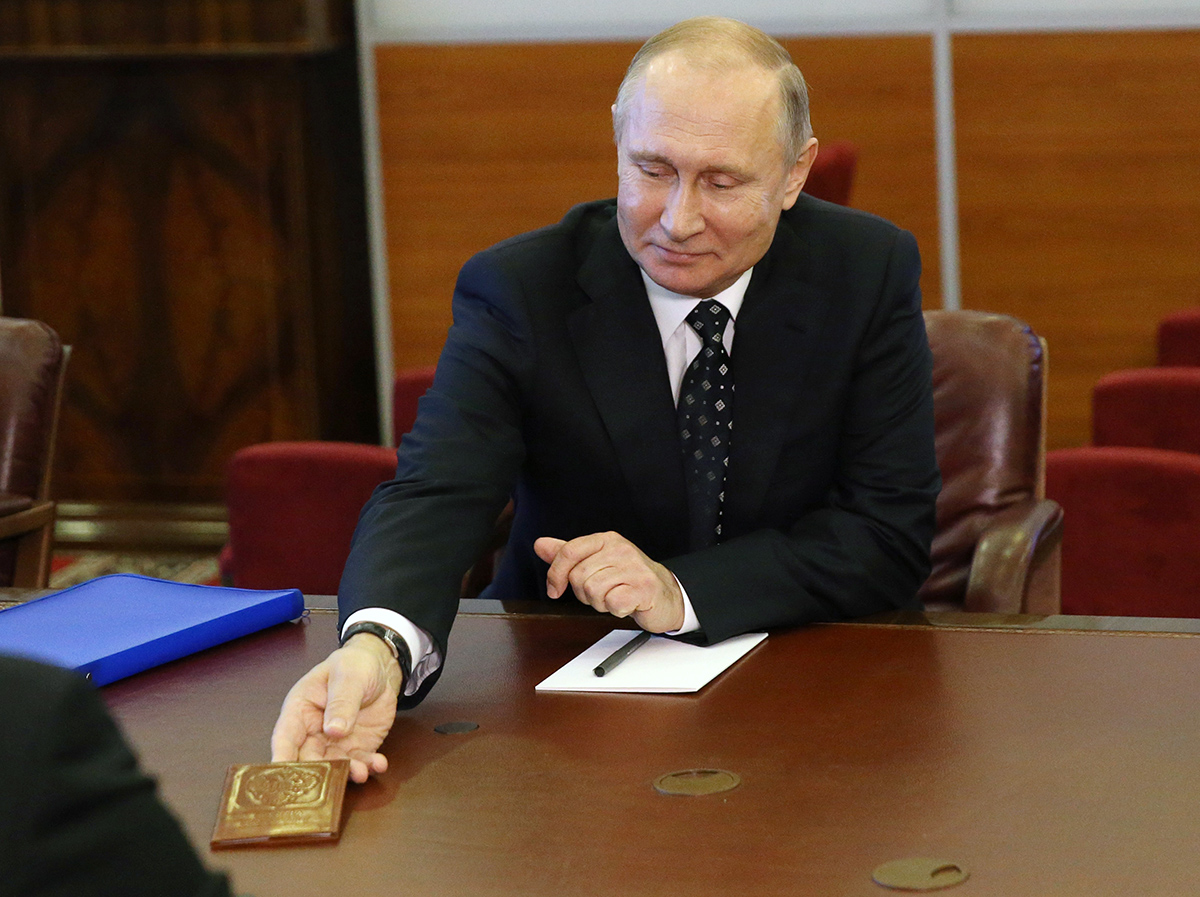Russian President Vladimir Putin signed a decree on simplified issuance of Russian passports to residents of the occupied Donbass. What Russia needs it for and to what plans of the Kremlin it can testify. "Apostrophe" spoke the analyst of "Ukrainian Institute of the Future" Igar Tyshkevich.
Russia quite actively pulled part of the people from the occupied Ukrainian territory to the Russian Federation itself. More than 600 thousand Ukrainians live there with different legal status. Most likely, they are mainly natives of Donbass. Some have received a temporary right of residence, temporary asylum, some of them have received citizenship.
If we look at the demographic situation in Russia, we see an interesting picture: the Slavic component of society is rapidly dying, and the level of the population of the Russian Federation is supported by an increased birth rate in national autonomies, in which the carriers of a very different culture live.
One can also recall where in the first year of war Russia sent so-called refugees from Donbass: to the far East, to Yakutia and so on. That is, Russia is interested in correcting the demographic situation in some regions — so that those people who already live in the Russian Federation, under a simplified scheme, receive citizenship and then assimilate, integrate into Russian society. This is the first component of demographic motivation.
Its second component is the policy of Russia to wash out part of the adequate, from their point of view, residents of Donbass on its territory. A very simple example: in 2014-2015, students of Donetsk and Luhansk universities who remained in the occupied territory were promised that they would receive diplomas from Russian universities. In fact, it turned out that only those who have an average score above a certain level can get them. And then, if you are not an excellent student, then you pass additional exams in Russia. And many students were offered either a job or to continue their studies already in Russia. This is the leaching of the working young part of the population. The same applies to qualified professionals. This desire is logical.
The third aspect is political pass in the direction of Ukraine. The situation with these "republics" remains in tenterhook and hits Vladimir Putin, too, who spoke: "We don't leave our people behind". The distribution of passports is an attempt to demonstrate that they do not give up. Therefore, passportization is likely to happen.
Given that we have largely lost the information war even in the liberated territory, they give a signal to residents who live in the territories controlled by Ukraine, but still have a positive attitude to the Russian Federation. This reduces the loyalty to Ukraine as a state project, even among those who live in the territory controlled by Ukraine, not to mention uncontrolled.
For Russia, it is expensive to maintain Donbass, and it is set to return this territory (on its own terms) to Ukraine in the future 3-4 years. And in the case of passportization, they get a population that has won some kind of ideological victory, albeit a small one, which has a local identity and is disloyal to Ukraine. In the case of shouting "Russia, protect us!"the Russian Federation has the right to raise this issue in international organizations, because formally there are its citizens there.
The next aspect: the settlement will take place in one way or another with the participation of international organizations. And if there are Russian citizens in Donbass, Russia can say that it is vitally interested in participating in the settlement of the situation. This is also a problem.
There is also a long-term problem for Ukrainian politics: let's imagine that the region returns under the control of Ukraine, and the Ukrainian legislation does not allow dual citizenship. This means that when checking any official for dual citizenship, there will be a reason not to appoint him. This is logical from the point of view of national security, but, again, it gives the Russian Federation a reason to raise a fuss in the international arena that Ukraine oppresses disloyal people, that Ukraine does not want to resolve the conflict and the like.
Finally, another point that is associated with short-term plans: in the autumn Ukraine will hold elections to the Verkhovna Rada. Since Mr. Zelensky won the presidential election, this clearly strengthens the position of "Svoboda" and other right-wing forces in the West of Ukraine. They may very well be held in Parliament. The initiative to distribute passports, of course, also strengthens the position of the right forces. Of course, it also strengthens the position of pro-Russian political forces in Ukraine. As a result, the Parliament will have two factions that cannot agree on the word at all. Russia is clearly counting on the fragmentation of the Ukrainian Parliament, and passportization is one of the ways to achieve it.
I doubt that this is done to ensure that the Russian army comes to protect Russian citizens. After all, does Russia need Donbass? If the Russian army breaks into Donbass, it will finally bury Russia's ability to influence the domestic political Ukrainian agenda.


